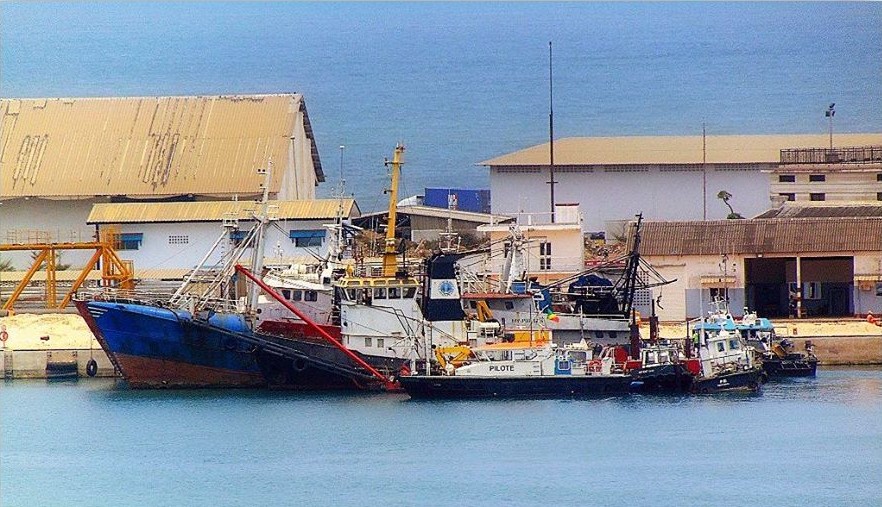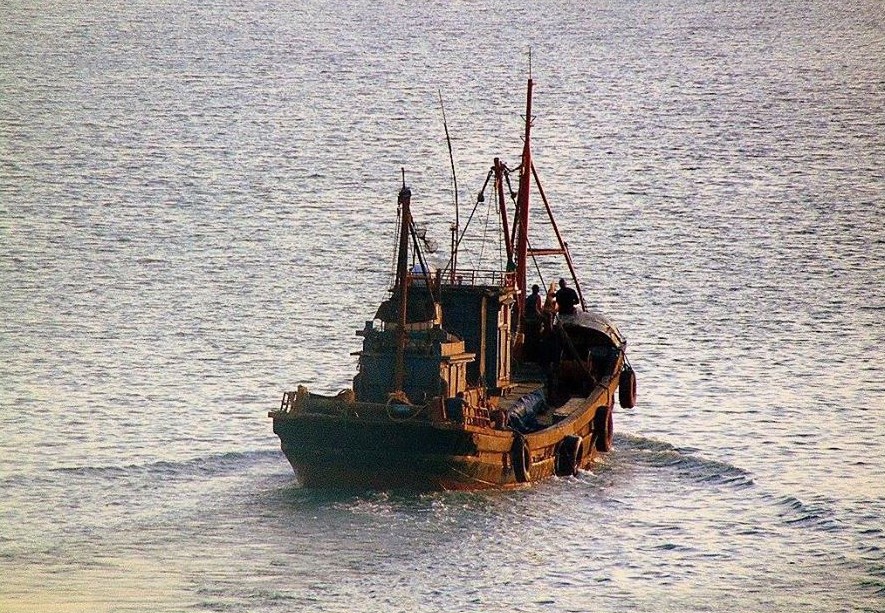The Congo Sets up a New Fisheries Monitoring Center
- 24 April 2020
- Category: Case Studies, News

The Congo Scales up its Sustainable Fisheries Management
The Ministry of Fisheries is creating a new Fisheries Monitoring Center and has chosen CLS, the global leader, as its provider.
Today, Congolese fisheries authorities face three main challenges:
- more industrial fishing vessels, which sometimes encroach on the coastal zone reserved for traditional fishers;
- the possibility of foreign vessels fishing in their sovereign waters, landing their catches in foreign ports, and depriving the Congolese of their own marine resources;
- overfishing and reduced stocks, jeopardizing the food security of the population. They rely heavily on protein from fish.
The Ministry of Fisheries Takes Action against Illegal (IUU) Fishing
To address these issues, the Ministry of Fisheries has progressively implemented a sustainable fisheries management plan. The Republic of Congo first passed legislation requiring licensing of fishing vessels in 2000.
Then in 2019, the government required Vessel Monitoring Systems for its industrial fleet. They chose CLS’ Triton Advanced VMS. This terminal meets international reporting requirements and is able to send electronic catch reports, should they choose to implement that in the future.

With these regulations, licensing and VMS, the Congo had set the foundations for sustainable management, but did not yet have the means to control and enforce those who do not follow the law. Managers needed an operational center that would enable real-time monitoring of fishing activity, analysis of this data, and coordination of surveillance and control activities.
To set up this Monitoring, Control, and Surveillance (MCS) center, the Congo turned to CLS, the world’s leading provider. CLS will provide the equipment and our THEMIS software platform, and training, enabling managers to have a complete view of fishing activity in their EEZ.
Congo Fisheries
Congo has a 180 km coastline and an estimated EEZ of 60,000 km2. According to some studies, the Congolese maritime fishing industry has an exploitable potential of between 70,000 and 100,000 metric tons of fish per year. The national industrial fleet amounts to about 100 vessels. The port of Pointe-Noire is Central Africa’s gateway to the ocean and the main landing point for fishery products caught in Congolese fishing waters. It is a key hub for intercontinental trade.

Marine Resources at Risk
There has been a rapid increase in number of industrial fishing vessels. In December 2017, 110 ships were identified operating in a relatively small fishing zone, compared to just 60 in 2015. Although overfishing has been a problem for years, precise data or assessments have been hard to come by, due to the lack of VMS tracking data and surveillance centers.
This recent intensification raises many challenges. First, these industrial vessels compete with the traditional Congolese fishing fleet. The government has passed legislation reserving the first 6 nautical miles from the coast for these small-scale fishers. But up until now, this has been difficult to enforce without control and monitoring systems. In addition, the increase in catches by the industrial fishing industry, and their freezing and packing for export, mainly to China, raises issues about the food security of the country’s inhabitants, many of whom depend on fish as a vital protein source.
Now, with the CLS Triton VMS installed and the THEMIS monitoring platform and operations center, authorities can protect these fishers and the Congo’s marine resources. They can set up restricted zones and see in real-time if industrial vessels are fishing in the zone reserved for small-scale fishers. With THEMIS, operators can instantly have access to vessel license or ID information if they observe suspicious activity, and authorities have proof of illegal fishing behavior or transshipment.
New Joint Ministry Commission
Two weeks ago, the Minister of Agriculture, Livestock, and Fisheries, Henri Djombo took a step further and announced a new commission to ensure that fisheries regulations are followed and to enforce the law. New resources, such as patrol boats and inspections, and new technology, such as VMS terminals and the THEMIS operations center, will enable effective enforcement.
Mr. Djombo insisted that fishing must be carried out legally. Only vessels that have a fishing license and have VMS terminals on board will be allowed to fish. “The team will check the boats to see if those vessels are not allowed to fish but are doing so in violation of the law,” he said.
“We must be very careful about the number of fishing boats. Only boats with a 2020 license are allowed to fish. The administration must ensure that this provision is respected and ask boats operating in Congolese marine waters to comply with the law,” said Henri Djombo.
